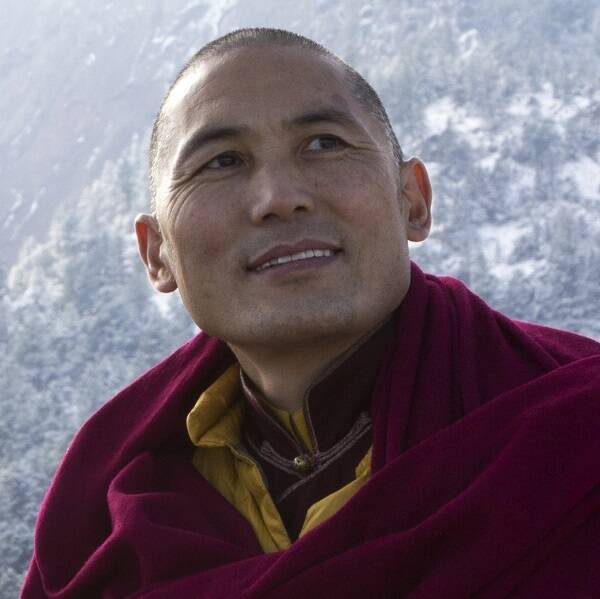Before Dza Kilung Rinpoche, head of Kilung Monastery in the Dzachuka region of Kham, Tibet, founded the Kilung Foundation in Clinton, he grew up in green highland valleys at an altitude of 15,000 feet.
He moved pasture to pasture, helping his family tend to yaks and sheep, sleeping in a tent made of yak hair. He traveled and communicated by horseback.
Today, Rinpoche, born Jigme Tendzin Chodrak, relies on modern convenience in his travels back and forth from Whidbey and around the world to give Buddhist teachings. Culture has changed a lot in his lifetime. While technological devices have brought much ease, Rinpoche has noticed people are more distracted than ever before.
In his new book, “The Free Mind: Finding Clarity in a Digitally Distracted World,” Rinpoche offers generational Kilung teachings that transcend the Buddhist practitioner and offer insight on remaining mindful and productive in the digital age.
“The island here is a very amazing place that has so much closeness to the nature resources and all this, and sometimes you can see the people here are also having some challenges,” he said. “Maybe they are too busy to look around and to feel the marvelous nature and the richness, sometimes people are spending more time in the screens and forgot to look around and then take a deep breath with the freshness and the sea smell.”
The book is structured a bit like an airplane flight. As it takes off, Rinpoche offers a brief exploration of humans’ relationship to technology today. Once in the air, the book discusses Buddhist practices and provides tools for how to frame this relationship.
The book then rises “above the clouds” in part three, examining the nature of happiness and suffering and the deeper implications of virtual reality. By part four, the reader returns to Earth, focusing on home and the environment.
The book teaches how to condition and develop positive habits, identify roots of pleasure and suffering with phones. As it goes on, the text broadens to the esoteric, discussing the essence of happiness. “The Free Mind” is part social observation, part philosophy, part self-help.
The first line reads, “Although the author, Kilung Rinpoche, is a Tibetan Buddhist lama and teacher, ‘The Free Mind’ is not a book on Buddhism.”
“People come to meditate with me from all ranges of age and different countries,” Rinpoche said. “No matter Eastern or Western, everybody has this common wish. Everybody is looking for happiness. No one is looking for unhappiness or suffering.”
As Rinpoche grew up with the rising technology, it felt promising, he said. He fondly remembers the time of the landline, whereby dialing each number he had to circle the digits with his finger, then speak to an operator to connect with who he was calling. People became able to communicate with someone instantly from across the world.
Soon the downsides came, he said. People spent more and more time with this device to the point of forming negative habits or even obsession.
“Everything is changing, and now people have what they call smartphones and smart devices and things,” he said. “They are smart. Almost too smart. It’s a takeover, takeover of everything.”
Using the phone has become unconscious for many people, he said. It’s not the choice that yields the most happiness.
“Sometimes in downtown city or somewhere where people rush and walking, many of them are carrying headphones,” he said. “While they’re walking, they’re looking at screen and also while the people are having meals and or waiting meals and also with family and friends, people around.”
Rinpoche sought answers in teachings from the Buddha. Like all things created by humans, modern devices require a balance to find a genuine life.
“It’s important to use this social media and things like that, but finding balance and patience and some kind of dignity of the mindfulness in there, this would be great,” he said.
An important aspect of this is time with family, he said, fostering meaningful conversations with children and family members and not immediately resorting to a screen. Check in and spend quality time.
With each passing generation, these skills become especially important, he said.
“Every one of us equally have a potential to find the freedom (like) the title we pick up here, ‘The Free Mind,’” he said. “Mind can be free for anyone. We all have a potential to really awake and (have a) deeper understanding our own mind.”



